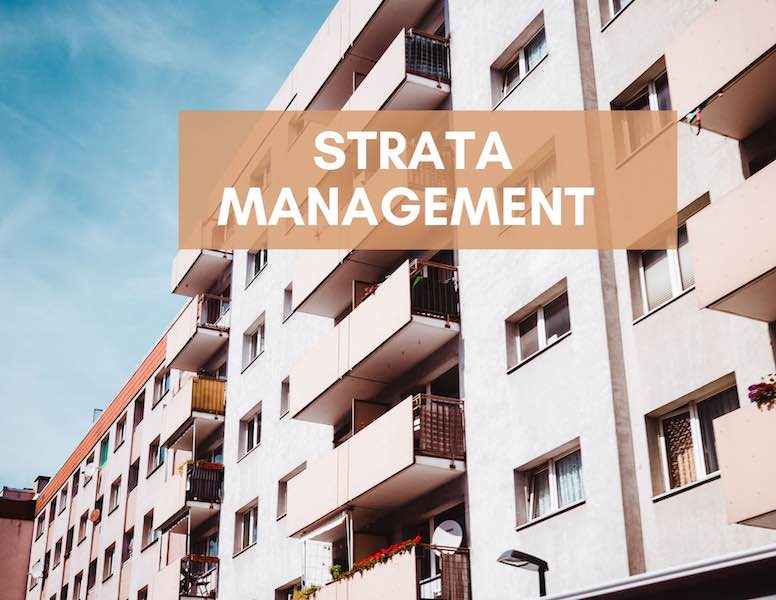Impact of Covid-19 on Payment of Charges in A Strata Property
by Jagshey Pipariya ~ 2 August 2021
Introduction
The Strata Management Act 2013 (the “SMA”) grants the Joint Management Body (“JMB”) or Management Corporation (“MC”) of a strata development inherent powers to ensure that its duties are performed satisfactorily, and the rights of strata owners are protected. A common example would be the right of the management to collect maintenance fees and sinking fund contributions from each unit owner. However, despite the statutory power given to the management of the day, property owners continue to default in payment of charges – even more so since the outbreak of the Covid-19 pandemic.
Steps That Can Be Taken Against Defaulters
Pursuant to Section 6(1) of the Fourth Schedule of the Strata Management (Maintenance and Management) Regulations 2015 (the “Regulations”), a stratified property owner is considered a ‘defaulter’ if he/she fails to pay the charges imposed by the management within 14 days from receiving a notice of demand. If the fees remain unpaid after the stipulated period has expired, the JMB or MC may file a claim at the Strata Management Tribunal (the “Tribunal”) to recover the outstanding sums.
There are several steps that can be taken by the management under the proviso of Section 6(3) of the Fourth Schedule of the Regulations. Firstly, the management may display a list of defaulters along with the respective unit numbers and outstanding balances on the notice boards of the development itself, provided that such list shall be updated by the management at the end of every month.
Secondly, the management has the right to deny defaulters, their immediate family members, guests and tenants from accessing the common facilities or other services provided in a strata property. This includes barring usage of the condominium gym, swimming pool, or any carpark bay designated to the defaulter. Generally, the management has the power to deactivate the access cards of the defaulter and deny access to any common areas of the strata property.
Should the defaulter continue to avoid paying the charges, the management may initiate a claim at the Tribunal by filing a Statement of Claim (Form 1) along with the relevant documents to support its claim. It is imperative to note that there is no limitation period for filing a claim at the Tribunal.
Whilst the Tribunal’s Award remains binding and enforceable, the aggrieved party, if dissatisfied with the decision of the Tribunal, may file a judicial review application at the High Court to challenge the said award. In the same breath, the successful party may proceed to enforce the decision of the Tribunal at the High Court by initiating enforcement proceedings. Any non-compliance with the Tribunal’s Award would be an offence under Section 123 of the SMA 2013, which came into force on 1st June 2015 and reads:
“Any person who fails to comply with an award made by the Tribunal commits an offence and shall, on conviction, be liable to a fine not exceeding RM250,000 or to imprisonment for a term not exceeding 3 years, or to both…”
In June 2020, the Subang Jaya Municipal Council (MPSJ) successfully secured a conviction against a stratified property owner who had failed to comply with the award handed down by the Tribunal. The proprietor was fined RM5,500.00 (or in the event of default, 1-month imprisonment) and was ordered to pay the outstanding maintenance fees[1].
It is pertinent to note that the criminal penalty imposed by the Tribunal against a stratified property owner who fails to comply with an award applies with equal force to a defaulting developer. As many strata property developers face financial difficulties amid this current challenging economic climate, most consequently choose to ignore their obligations to pay maintenance fees and sinking fund contributions for the unsold units under their ownership.
Sections 10(1), 10(2) and 10(3)(b) SMA 2013 expressly state that the developer shall establish, operate and maintain a maintenance account and any charges to be paid by the developer, in respect of parcels in the projects that have not been sold, shall be deposited into this account. Similarly, Sections 11(1), 11(2), 11(3)(b) and 11(4)(b) SMA 2013 require developers to contribute to the sinking fund for parcels in the development that are unsold and remain in their name.
As such, it is clear that strata development developers have a duty to pay the maintenance fees as well as contribute to the sinking fund. In this regard, Section 123 SMA 2013 would equally apply in the event a tribunal delivers its award against a developer who defaults.
There is an increasing concern for the lack of action taken against developers who fail to pay maintenance fees or sinking fund contributions for unsold units. As many strata owners remain unaware of a developer’s duty under the SMA 2013, it is advisable for the management to prepare a list of defaulters on a monthly basis to keep track of the maintenance fees and sinking funds in arrears. This also ensures that the strata owners are well-informed about their development and may accordingly advise the management to commence legal proceedings against defaulters.
Steps That Can Be Taken By Defaulters
There is, however, a possibility that the reason for the default by the strata owner or developer is due to the wrongful imposition of the management fees or sinking fund contributions. Further, the management may also breach other provisions of the law, such as the failure to account for the collection of charges or the failure to hold the Annual General Meeting (“AGM”) within the stipulated period, i.e. once in each year and not more than fifteen months between the date of one AGM and the next (Section 10, Second Schedule of the SMA 2013).
Should the above breaches occur within a development, a property owner in the development has the requisite locus standi to take legal action. He may first lodge a complaint with the Commissioner of Buildings (COB), and if no action is taken, he may file a claim at the Tribunal against the management. Where the management has already initiated proceedings against the owner at the Tribunal, the owner may defend the claim by filing a Defence, and where necessary, a counterclaim along with the Defence. Information and forms for such filing can be accessed easily at the Tribunal Perumahan dan Pengurusan Strata (TPPS) website.
Alternatively, and depending on the dispute faced by a strata owner, an owner may engage the services of a law firm to file a claim at the Courts in Malaysia.
Conclusion
Unfortunately, due to the impact of the Covid-19 pandemic on the strata development industry, more strata owners and developers are seen to be in default of making payment to the charges imposed by the management of the day.
The Strata Management Tribunal has the inherent jurisdiction to hear claims of up to RM250,000.00 and deliver an award against those in breach of the provisions of the SMA 2013 and/or the Regulations. Non-compliance of the award is considered a criminal offence as the Tribunal’s award is binding and enforceable on all relevant parties.
The law will become an ornament if no legal action is taken, be it against a developer, a strata property owner, or even the management itself for the imposition of wrongful charges. Whilst the initiation of legal proceedings can be daunting, the SMA 2013 and the Regulations strongly urge the filing of claims with the Tribunal, which smoothens the path to justice.
[1] ‘Landmark ruling on failure to pay maintenance fees’, The Star, 3 July 2020.

